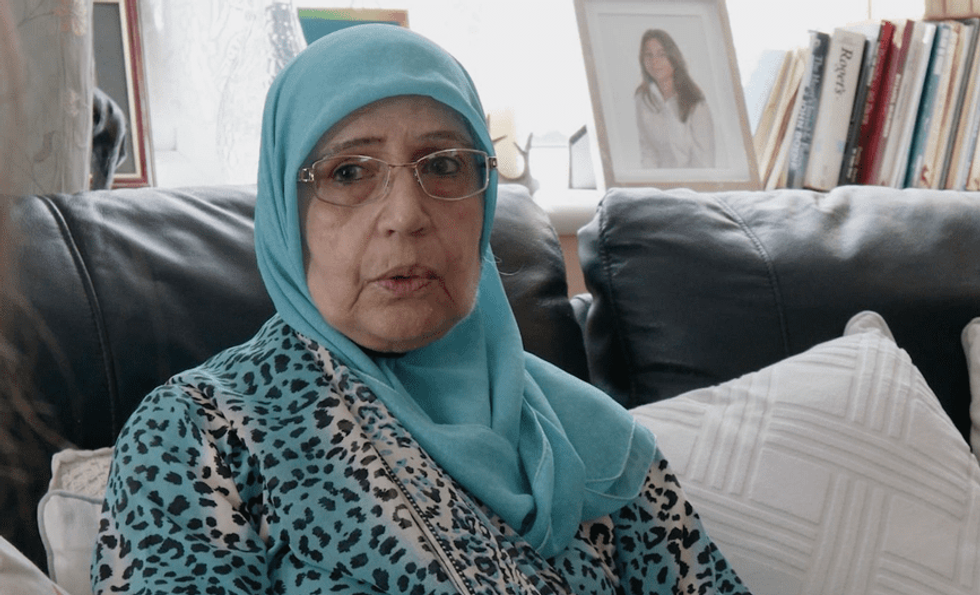RIFCO Theatre’s creative director Pravesh Kumar said his family’s expulsion from Uganda, in 1973, prompted a digital series on south Asians fleeing the dictatorship of Idi Amin.
Titled GenerAsians – The Ugandan Expulsion, the production charts the story of seven families who left Uganda 50 years ago under tumultuous circumstances, with each individual history told through a filmed interview.

There are stories of families reaching UK shores and making a success of their life in Britain; some involving a journey back to Uganda after years of living away and others of a stark contrast between a privileged life of the past versus the challenges of a fresh start.
Themes of how displacement, prejudice and new beginnings shaped a generation’s definition of home run through the various stories.
Asian families in Uganda in 1973 were given 90 days to leave, but many didn’t wait that long as the ensuing violence saw some escape overn i g h t , leaving behind everything they had. Among them was Kumar’s grandmother. “She carried a huge handbag wherever she went. One day she left the bag in one of those old telephone boxes across the road and all panic ensued, much more than you would think for a handbag. My grandmother told us all her gold was in the lining of that bag,” Kumar said.
“Then unfolded the story of how people had to leave Uganda overnight. As soon as the announcement had been made, and even before that, things were quite terrible. People from both sides (Ugandans and Asians) were being killed, businesses were being taken over.

“It was a really dangerous time.” The experience had a profound impact on Kumar’s
grandmother, he said.
“We asked her why she carried her gold in her handbag. She said it was because she didn’t trust anyone. ‘I don’t even trust Britain. They may throw us out overnight’,” Kumar quoted her as saying. “It’s sad, really, having that fear that at any moment you could be asked to leave. For many years, south Asians made Uganda and East Africa their home and many still live there now. But for an entire generation, their memory is of being made homeless overnight.”
It wasn’t just Kumar who has a family history linked to Uganda – Rifco associate director Ameet Chana’s family also left Uganda during the expulsion. “It’s around us, all these stories about families having to flee Uganda and make their homes here with very little,” said Kumar.
“As a British south Asian theatre company, it’s important for us to talk about our history.”
Kumar believes it’s vital the younger generation are made aware of what their ancestors went through.
South Asian history and subjects such as the Ugandan expulsion of south Asians, Partition and colonialism are not taught in British schools. “Until we know where we come from, how can we know where we’re going?” said Kumar.
“If you don’t know your own history, then when there are moments of microaggression or racism, when someone says to you ‘go back to where you came from’, you won’t have an answer if you don’t know about empire. He added:
“As a theatre company, it’s our duty to tell our untold stories, tackle the difficult subjects and to really shine a spotlight on where we’ve come from.” Kumar is also championing upcoming south Asian talent through the Rifco Associates Programme, where candidates get a bursary alongside mentoring support, writer-in-residence days and masterclasses with industry leaders to develop their craft during the year-long course.

Writers, lyricists, composers, designers, aerial artists and spoken word performers are among those who have been supported under the initiative.
Each of the new associate pieces are filmed, made available online as well as performed in a live showcase event.
“As a national touring organisation, our goal is to continue to connect with audiences all over England and present them with the very best of British south Asian theatre and digital work,” said Kumar.
During the pandemic Rifco began creating digital shows as a way to give work to artists whose livelihoods were hit as a result of the lockdowns.
Though Rifco continues to produce successful plays, its digital productions have grown with regular series such as Leave the Plastic On, The Desi Lockdown and I am a British Asian. “Digital films are consumed at a much higher rate, especially for under 40s,” said Kumar.
“It’s a real space to talk to young people who may be unaware of their history or want to understand cultural issues; it will change their lives when they learn about what how their history is linked to some of the present challenges they face in multicultural Britain.”
Creating GenerAsians – The Ugandan Expulsion was an eyeopener, Kumar said.
“We all discovered there’s so much that’s happened to our parents and our grandparents that we often we just write them off as ‘oh God, they’re a bit grumpy’ or ‘oh God, get over it’. But when you hear the things they had to go through to get us here, to get to safety, to keep a roof over our heads – it changes the way you look at them and look at yourself.”
Kumar said he was considering producing a play based on the GenerAsians stories. “If there is a writer out there who has the skills to tell this incredible story then I’d love to hear from them,” he said.
















 Naeli and the secret song
Naeli and the secret song
 Jamie Lloyd’s Evita with Rachel Zegler set for Broadway after London triumphInstagram/
Jamie Lloyd’s Evita with Rachel Zegler set for Broadway after London triumphInstagram/
 A compelling premise, layered and unpredictable charactersAMG
A compelling premise, layered and unpredictable charactersAMG Anyone who enjoys a gripping story with a diverse cast and unexpected twistsHarperFiction
Anyone who enjoys a gripping story with a diverse cast and unexpected twistsHarperFiction
 The Story Teller by Ley Roberts
The Story Teller by Ley Roberts Summer Exhibition coordinator Farshid Moussavi, with Royal Academy director of exhibitions Andrea Tarsia in the background
Summer Exhibition coordinator Farshid Moussavi, with Royal Academy director of exhibitions Andrea Tarsia in the background An installation by Ryan Gander
An installation by Ryan Gander A sectional model of DY Patil University Centre of Excellence, Mumbai, by Spencer de Grey
A sectional model of DY Patil University Centre of Excellence, Mumbai, by Spencer de Grey Rituals and Identity and Theatre of Resistance by Arinjoy Sen
Rituals and Identity and Theatre of Resistance by Arinjoy Sen